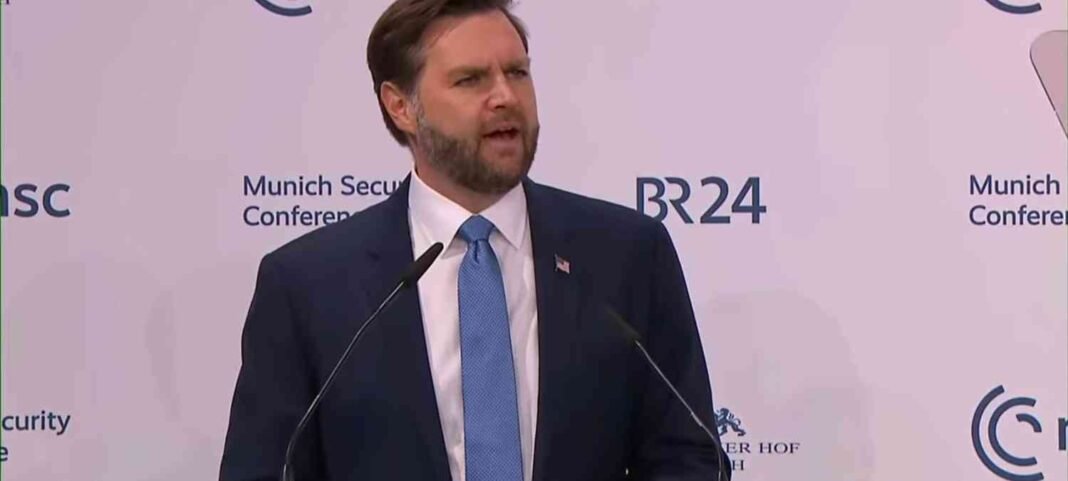The US Vice-President JD Vance delivered a fiery speech at the Munich Security Conference, where he launched a scathing critique of European democracies, asserting that the continent’s most significant threats stem from internal issues rather than external pressures from the Russia and China.
Anticipation had built around Vance’s address, with many expecting him to discuss potential negotiations to resolve the ongoing conflict in Ukraine. However, he diverted from this expectation, focusing instead on what he described as a retreat from core democratic values by the European governments, including those in the UK.
Vice President JD Vance’s remarks were met with a notable silence from the audience, followed by sharp rebukes from several attendees. German Defence Minister Boris Pistorius condemned the speech as “not acceptable,” highlighting the discontent among European leaders regarding Vance’s assertions.
Echoing sentiments from the Donald Trump administration, Vance emphasized the need for Europe to enhance its own defense capabilities. He stated, “Europe must step up in a big way to provide for its own defense,” reiterating a familiar call for European nations to take greater responsibility for their security.
While the war in Ukraine was briefly mentioned, with Vance expressing hope for a “reasonable settlement,” the bulk of his speech centered on cultural and political issues that resonate with Trump’s campaign themes.
JD Vance accused European Union officials of stifling free speech, attributed mass migration to the continent’s policies, and claimed that European leaders were abandoning fundamental democratic principles.
Kaja Kallas, the EU’s foreign policy chief, criticized Vance’s approach, suggesting he was “trying to pick a fight” with Europe, which is home to some of the US’s closest allies. Former US ambassador to Russia, Michael McFaul, also weighed in, labeling Vance’s comments as “insulting” and “just empirically not true.”
Throughout his 20-minute address, JD Vance singled out various European nations, including the UK, to illustrate his points. He referenced a legal case involving an army veteran convicted for silently praying outside an abortion clinic, arguing that such actions reflect a broader threat to the “basic liberties of religious Britons.”
In a politically charged moment, JD Vance addressed the upcoming national election in Germany, where a contentious debate is ongoing regarding mainstream parties’ refusal to cooperate with the far-right Alternative for Germany (AfD) party. This longstanding consensus among German political factions has been a cornerstone of the country’s post-Nazi democratic framework.
VP Vance also touched on the annulled presidential election in Romania, which was reportedly influenced by Russian state interference.
VP Vance remarked, “If your democracy can be destroyed with a few $100,000 of digital advertising from a foreign country, then it wasn’t very strong to begin with.” Romanian Prime Minister Marcel Ciolacu responded by reaffirming his country’s commitment to democratic values and the integrity of its electoral process.
Following his speech, Vance met with Ukrainian President Volodymyr Zelensky on the sidelines of the conference. Zelensky emphasized the need for further planning to end the conflict, while Vance described their discussion as “fruitful.”
The conference, which primarily focused on Russia’s ongoing invasion of Ukraine, was overshadowed by Vance’s controversial remarks. Earlier in the week, the US President Donald Trump had announced that the US, Russian, and Ukrainian officials would convene in Munich, although Moscow later confirmed it would not send a delegation to the summit.
JD Vance’s address has sparked significant debate, with many European leaders expressing concern over the implications of his comments for transatlantic relations.
As the Munich Security Conference continues, the focus remains on the broader geopolitical challenges facing Europe and the ongoing conflict in Ukraine, alongside the internal dynamics that Vance highlighted in his speech.








